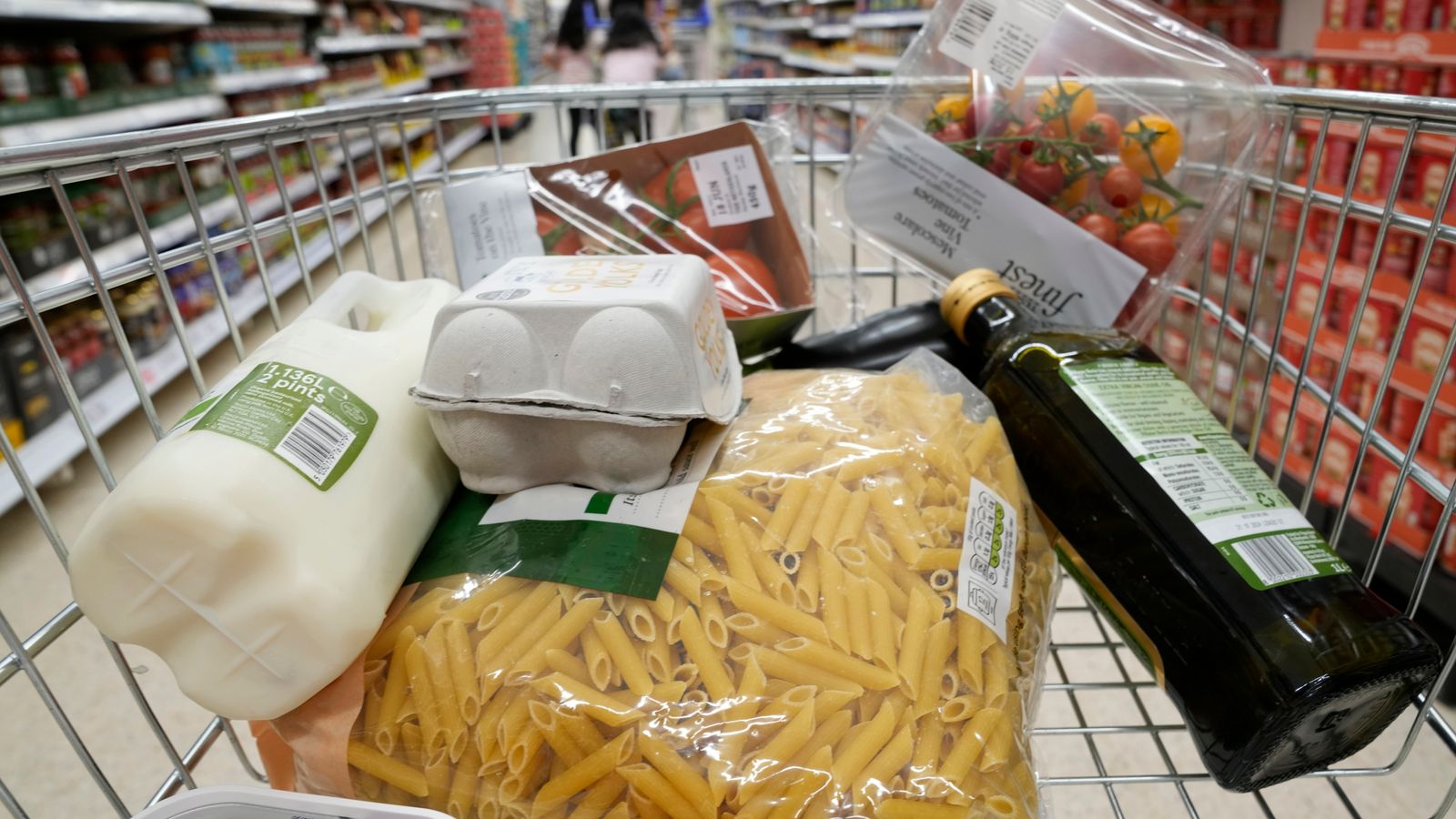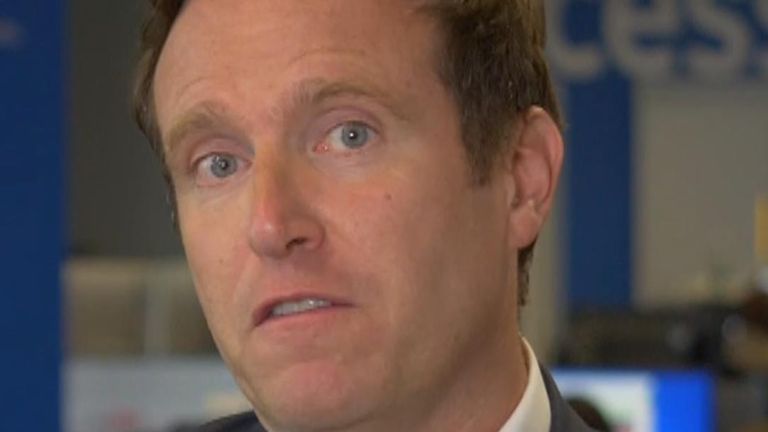Food price inflation has slowed to its lowest level this year – as costs fall for staples such as oils, fats, fish, and breakfast cereals, research suggests.
However the rate of 13.4% – in the year up to July – still remains high.
But the British Retail Consortium (BRC), which compiled the figures with retail analysts NielsenIQ, said it was still the lowest level since December 2022 and represented “cause for optimism”.
It marks the third month in a row that the pace of food price rises has fallen, following rates of 15.4% in May and 14.6% in June.
NielsenIQ also said the figures showed “the outlook is improving”.
Overall, the research found that annual shop price inflation eased to 7.6% in July – the lowest rate this year – down from 8.4% in June.
Prices fell compared with June – by 0.1% – for the first time in two years.
Non-food inflation decreased to 4.7% in July, down from 5.4% in June, largely because of reductions in the price of clothes and footwear.
Mike Watkins, head of retailer and business insight at NielsenIQ, said: “The summer holiday period should help discretionary spend a little and, whilst inflation remains high, the outlook is improving.
Read more:
Consumer borrowing hits five-year high
Banks forced to justify low interest rates under new rules
First female boss of BT announced
“Shoppers continue to change how they shop as part of their coping strategies. This includes shopping at different retailers, buying lower priced items, delaying spend or only buying when there are promotions. This behaviour looks set to continue.”
However, the BRC cautioned that the trend in falling food inflation might not continue as smoothly in the coming months as the industry faces further challenges, including Russia’s recent decision to pull out of a deal allowing for the safe export of grain from Ukraine.
Helen Dickinson, chief executive of the BRC, said: “These figures give cause for optimism, but further supply chain issues may add to input costs for retailers in the months ahead.
“Russia’s withdrawal from the Black Sea Grain initiative and subsequent targeting of Ukrainian grain facilities, as well as rice export restrictions from India are dark clouds on the horizon.
“We expect some global commodity prices to rise again as a result, and food prices will be slower to fall.”
Earlier this month the Office for National Statistics reported an inflation rate of 7.9% in the year to June, a bigger than expected fall from 8.7% in May.

